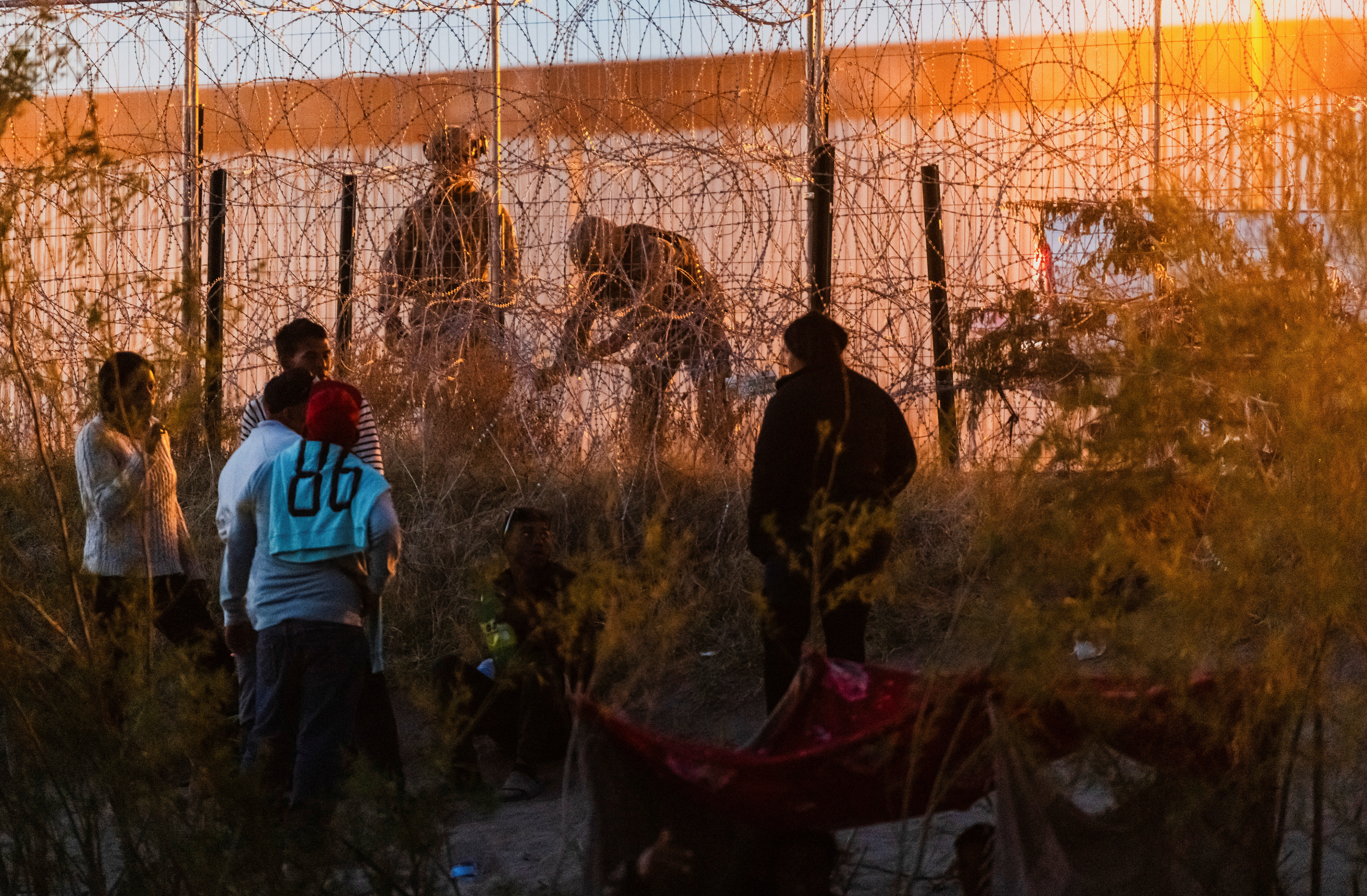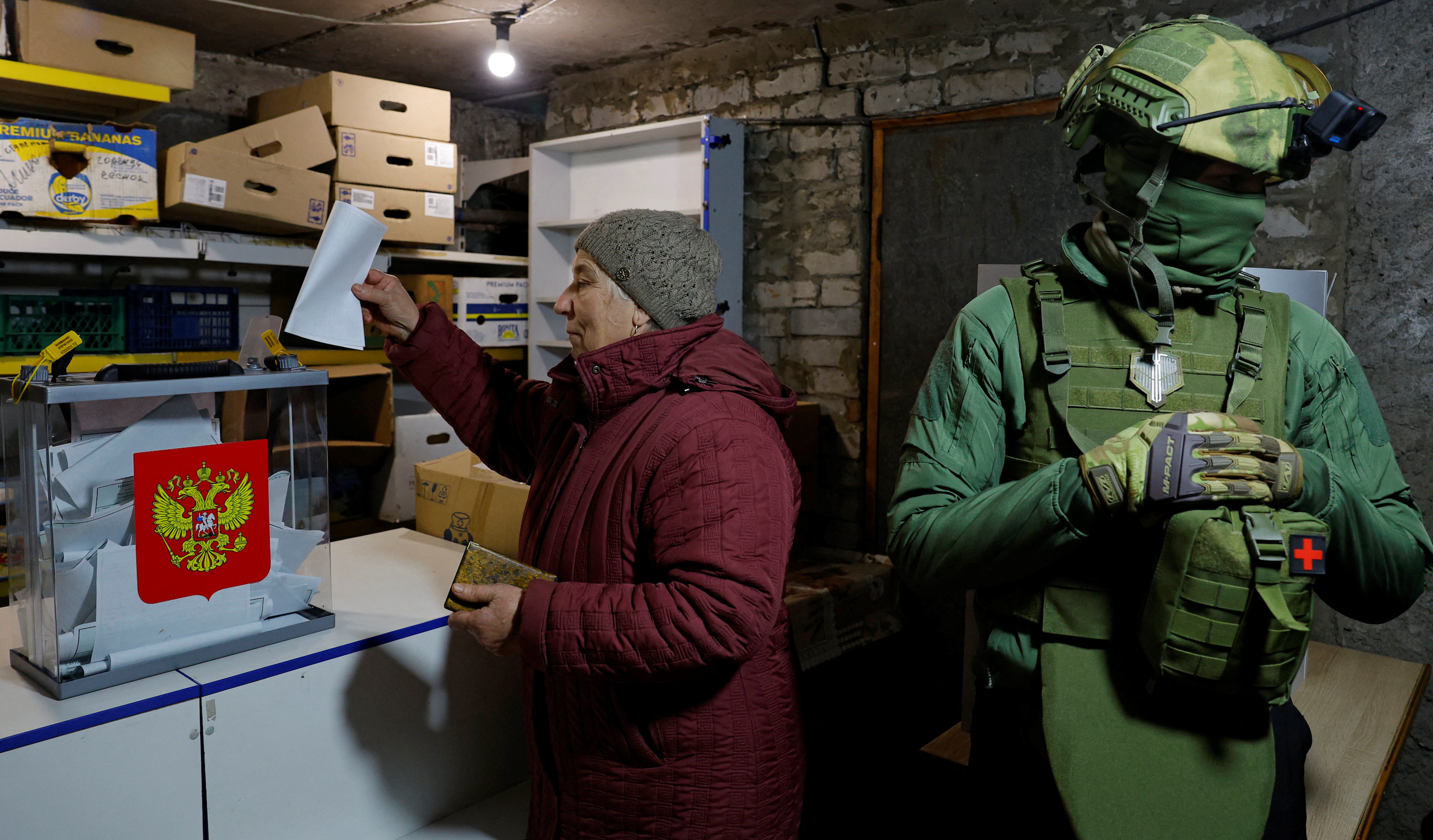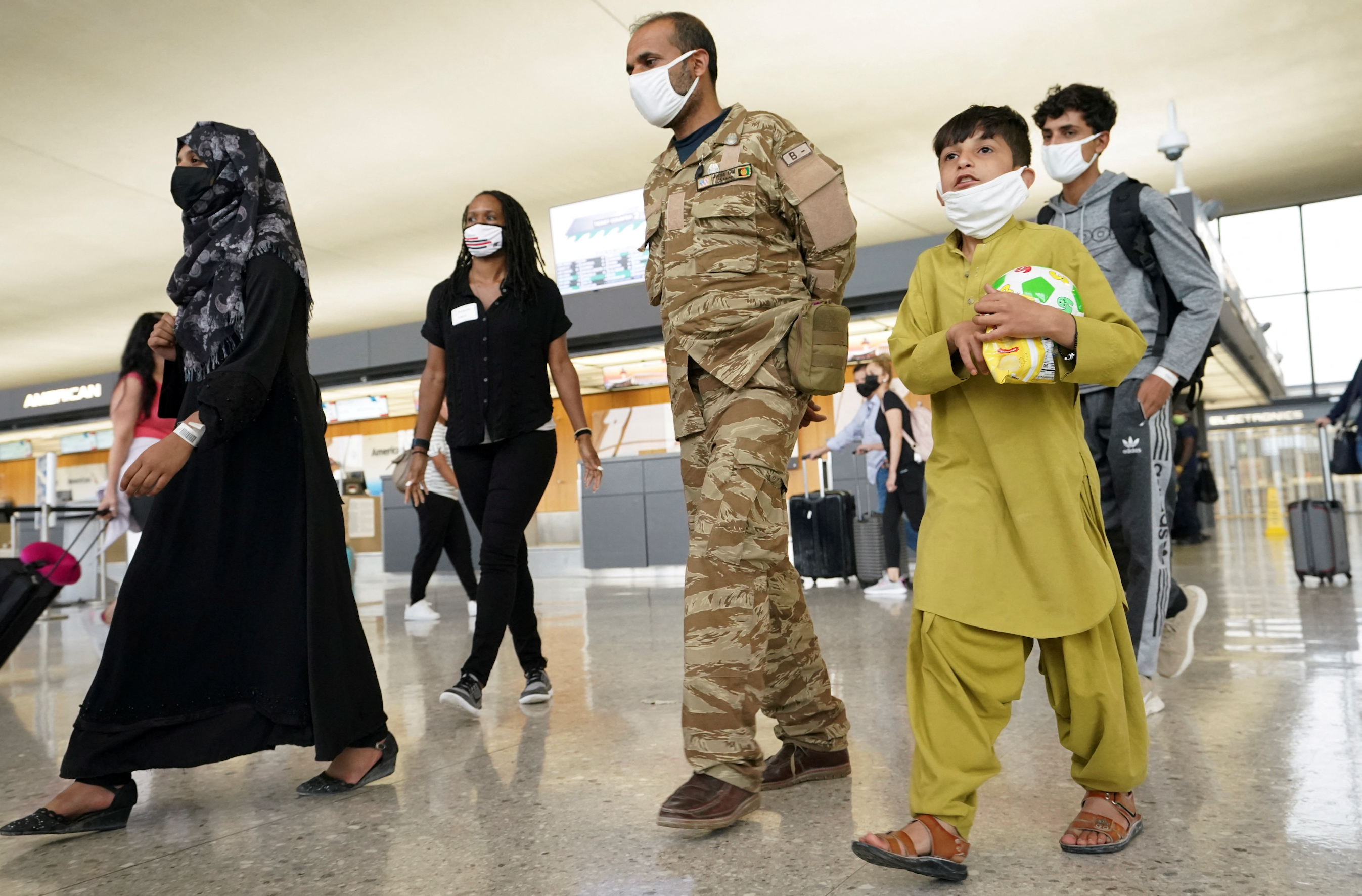
Texas border enforcement law blocked in latest legal clash
PHOTO CAPTION: A group of migrants camp out along the border wall on the U.S. side of the Rio Grande after the U.S. Supreme Court let a Republican-backed Texas law known as SB 4 take effect, allowing state law enforcement authorities to arrest people suspected of crossing the U.S.-Mexico border illegally, in El Paso, Texas, U.S., as seen from Ciudad Juarez, Mexico March 19, 2024. REUTERS/Justin Hamel
By Mica Rosenberg and Kristina Cooke
(Reuters) -A Republican-backed Texas law that would empower law enforcement authorities in the state to arrest people suspected of illegally crossing the U.S.-Mexico border was blocked again late on Tuesday by a federal appeals court, just hours after the U.S. Supreme Court had cleared the way for it to go into effect.
The New Orleans-based 5th U.S. Circuit Court of Appeals halted enforcement of the law, reviving a federal judge's order blocking it in response to a challenge by Democratic President Joe Biden's administration. The 5th Circuit set arguments for Wednesday on whether to keep the block in place while Texas appeals it.
The legal back and forth in the case has caused uncertainty about the future of the measure signed in December by Republican Texas Governor Greg Abbott.
The Biden administration sued in January to stop the law, known as SB 4, which was originally set to take effect on March 5. The administration argued it violates the U.S. Constitution and federal law by interfering with the U.S. government's power to regulate immigration as well as running afoul of a 2012 Supreme Court precedent.
The statute authorizes Texas law enforcement to arrest people suspected of entering the United States illegally, giving local officers powers long delegated to the federal government. Abbott said the law was needed due to Biden's failure to enforce federal laws criminalizing illegal entry or re-entry.
The Supreme Court, which has a 6-3 conservative majority, on Tuesday had decided to let the law take effect, with the three liberal justices in dissent.
The law is one of several measures put in place by Abbott aimed at deterring migration in the state including deploying National Guard troops and state law enforcement under its Operation Lone Star and placing concertina wire and floating buoy barriers along the Rio Grande river.
On Tuesday night at the border between Ciudad Juarez, Mexico and El Paso, Texas, several groups of migrants who had already crossed the river into the United States but were blocked by concertina wire along the banks built fires for warmth in makeshift encampments made of sheets and sticks, waiting for a chance to navigate through the barrier.
'CHAOS AND CONFUSION'
Republicans have criticized Biden's handling of the record numbers of migrants caught illegally crossing the border. Abbott and other Republicans favor the restrictive policies of former President Donald Trump, their party's candidate challenging Biden in the Nov. 5 U.S. election.
Opinion polls reveal acute voter concern over the situation along the border. Reuters/Ipsos polling showed Biden's public approval level at 37% as of Feb. 28.
White House Press Secretary Karine Jean-Pierre said on Tuesday the Texas law would "sow chaos and confusion at our southern border."
The Texas law made illegal entry or re-entry into Texas a state crime, with penalties ranging from 180 days in jail to 20 years in prison. It would require Texas magistrate judges to order migrants to return to Mexico, with up to 20-year sentences for those who refuse to comply.
Mexico said on Tuesday it would not accept those repatriated by Texas.
Texas-based U.S. District Judge David Ezra on Feb. 29 sided with the Biden administration and agreed to preliminarily block Texas officials from enforcing the law, saying it "threatens the fundamental notion that the United States must regulate immigration with one voice."
But the 5th Circuit paused Ezra's ruling in an order that would have let the law take effect on March 10, prompting the administration to file an emergency request to the Supreme Court. Justice Samuel Alito, acting for the Supreme Court, on March 4 had halted the 5th Circuit ruling - and thus the law - from taking effect, giving the justices more time to consider the matter.
A 5th Circuit panel, in a 2-1 vote, on Tuesday night lifted the administrative stay ahead of arguments on whether to once again put on hold the judge's injunction while Texas pursues an appeal.
The majority in the appeals court's order included Judge Priscilla Richman, an appointee of Republican former President George W. Bush, and Judge Irma Carrillo Ramirez, a Biden appointee. Judge Andrew Oldham, an appointee of Republican former President Donald Trump, dissented.
(Reporting by Mica Rosenberg in New York, Kristina Cooke in San Francisco; Additional reporting by Kylie Madry in Mexico City, Nate Raymond in Boston, John Kruzel in Washington and Andrew Chung in New York; Editing by Will Dunham, David Gregorio and Lincoln Feast)









